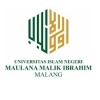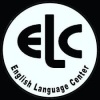Differentiated Learning Instruction in the Cultural Studies Classroom: EFL Students’ Experiences
Abstract
Learning experience particularly performed by students. Learning outcomes influenced by students’ learning experience. This study aims to explore EFL students’ experiences through differentiated learning instruction, which focuses on readiness, interest, and learning environment aspects in the Cultural Studies classroom. This research applied the qualitative method with a narrative inquiry approach. To collect the data, the researcher used a semi-structured interview to consider the narration of English Language Education 6th semester in English Language Education Department at Universitas PGRI Adi Buana Surabaya. The results of the study showed that some EFL students experiences by using differentiated learning instruction improved their readiness in having self-esteem for their knowledge and English language skills, improved their interest in the form of students’ attitude and teacher’s roles, and learning environment by showing their comfortable situation in expressing opinions in discussion. Furthermore, the study found that there were several impacts by using differentiated learning instruction for EFL students. This study recommended for the students to help each other in the learning process. In addition, the researcher also suggested the teacher to overcome student’s problems or what the student’s needs by using differentiated learning instruction.
Full Text:
PDFReferences
Aliakbari, M., & Haghighi, J. K. (2014). Impact of Differentiated Instruction Strategies and Traditional-Based Instruction on the Reading Comprehension of Iranian EFL Students. Journal of Research in Applied Linguistics, 5(1), 109–129.
Alzahrani, F., Zamakhshari, N., & Elshemy, R. (2022). Did they Manage to Meet Students’ Needs? English Language Instructors’ Experiences of Remote Instruction Differentiation. World Journal of English Language, 12(7), 28–44. https://doi.org/10.5430/wjel.v12n7p28
Argyropoulou, T., & – Nina Zafiri, M. (2021). Improving the Writing Skills of EFL High School Learners through Alternative Methods of Assessment and Differentiated Instruction. International Journal of English Language Education, 9(1), 142. https://doi.org/10.5296/ijele.v9i1.18572
Borja, L. A., Soto, S. T., & Sanchez, T. X. (2015). Differentiating Instruction for EFL Learners. International Journal of Humanities and Social Science, 5(81), 30–36. https://ccle.ucla.edu/pluginfile.php/2329904/mod_resource/content/0/W5-2-Borja SotoSanchez.pdf
Creswell, John W.Poth, C. N. (2018). Qualitative Inquiry Research Design Choosing Among Five Approaches. In Angewandte Chemie International Edition, 6(11), 951–952. (Issue Mi).
Haelermans, C. (2022). The Effects of Group differentiation by students’ learning strategies. Instructional Science, 50(2), 223–250. https://doi.org/10.1007/s11251-021-09575-0
Khalil, M. K., & Elkhider, I. A. (2016). Applying learning theories and instructional design models for effective instruction. Advances in Physiology Education, 40(2), 147–156. https://doi.org/10.1152/advan.00138.2015
Komang Arie Suwastini, N. (2021). Differentiated Instruction for Efl Classroom. TELL-US Journal, 7(1), 14–41. https://doi.org/10.22202/tus.2021.v7i1.4719
Ma’rifah, A., Rochsantingsih, D., & Sulistyawati, H. (2020). Exploring students ’ learning experiences in a Thai EFL classroom : a narrative inquiry. Journal of English and EducationLeksika, 14(1), 14–21.
Magableh, I., & Abdullah, A. (2020). The Effect of Differentiated Instruction on EFL Learners: Teachers’ Perspective. International Journal of Academic Research in Business and Social Sciences, 10(5). https://doi.org/10.6007/ijarbss/v10-i5/7235
Maruf, N. (2023). the Interplay of Teachers’ Beliefs, Attitudes, and the Implementation of Differentiated Instruction in Indonesian Efl Contexts. English Review: Journal of English Education, 11(2), 357–364. https://doi.org/10.25134/erjee.v11i2.7251
Maulana, H., & Oktavia, W. (2023). Indonesian EFL Students ’ Perceptions on Implementing Differentiated Learning in Learning English. Journal of English Language Teaching, 12(3), 694–702. https://doi.org/10.24036/jelt.v12i3.124763
Naka, L. (2017). The importance of differentiated instruction in EFL learning.
Naka, L. (2018). Differentiated instruction in English Foreign Language learning in undergraduate studies. Journal of Literature, Languages and Linguistics, 42, 102–112. www.iiste.org
Octavia, N., Astutik, Y., & Rahayu, E. M. (2023). Teachers’ Teaching Strategies For Teaching Speaking Skills At Junior High School. Borneo Educational Journal (Borju), 5(1), 37–47. https://doi.org/10.24903/bej.v5i1.1107
Ortega, D. P., Cabrera, J. M., & Benalcázar, J. V. (2018). Differentiating instruction in the language learning classroom: Theoretical considerations and practical applications. Journal of Language Teaching and Research, 9(6), 1220–1228. https://doi.org/10.17507/jltr.0906.11
Puspita Prasta Situmorang, I., & Dian Andanty, F. (2023). Understanding Extrinsic Factors Towards Efl Students’ Motivation in Blended Learning. International Conference on Language and Language Teaching, InCoLLT, 339–353. http://creativecommons.org/licenses/by-nc/4.0/.
Şaban, C., & Atay, D. (2023). Differentiated Instruction in Higher Education EFL Classrooms: Instructors’ Perceived Practices in a Turkish Context. Mextesol Journal, 47(2), 0–2.
Tomlinson, C. A. (1999). The Differentiated Classroom Responding to the Needs of All Learners. In Association for Supervision and Curriculum Development (Vol. 37, Issue 3).
Tomlinson, C. A. (2017). How to Differentiate Instruction in Academically Diverse Classrooms. In Toxicology (Vol. 44, Issue 1).
Widiati, Utami, Kadarisman A. Effendi & Irawati, E. (2018). Students Experiences In Collaborative EFL Writing. International Journal of English and Education, 7(1), 289–299.
Zulhermindra, Z., Suyono, S., Rahmawati, R., Kasuma, Y., Rahmi, S., & Kurniasih, A. (2023). Implementing Differentiated Learning in an EFL Class: How Students from Different Learning Styles Perceived Its Advantages (Issue ICoeSSE). Atlantis Press SARL. https://doi.org/10.2991/978-2-38476-142-5_56
DOI: https://doi.org/10.18860/jeasp.v7i1.26781
Refbacks
- There are currently no refbacks.

This work is licensed under a Creative Commons Attribution-ShareAlike 4.0 International License.







Editorial Office:
Pusat Pengembangan Bahasa
Program Khusus Pengembangan Bahasa Inggris (PKPBI)
Universitas Islam Negeri Maulana Malik Ibrahim Malang
Gedung C lantai 1
Jl. Gajayana No 50 Kota Malang, Jawa Timur, Indonesia
Kode Pos 65144, Telp/Fax : (0341) 570872
Email: jeasp@uin-malang.ac.id
JEASP : Journal of English for Academic and Specific Purposes is licensed under a Creative Commons Attribution-ShareAlike 4.0 International











